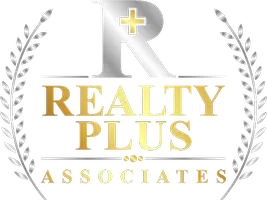Blog > Common Types Of Mortgage Loans (Concise Guide)
Conventional Loan
A conventional loan is one that is not guaranteed by the government, such as the Department of Veterans Affairs. Conventional mortgages frequently meet Fannie Mae and Freddie Mac's down payment and income standards, as well as the Federal Housing Finance Administration's (FHFA) loan limits.
To qualify for a traditional loan, you'll need a credit score of at least 620, however, a score of over 740 will help you receive the best rate. With a traditional loan, you may be able to make a down payment as low as 3%, depending on your financial situation and the amount you're borrowing. (However, keep in mind that a larger down payment may help you receive a better rate.)
Conventional loans are frequently the best option for buyers with good credit who can put down at least 3% of the purchase price, if not more.
Federal Housing Administration (FHA) Loan
A Federal Housing Administration (FHA) loan is a mortgage that is guaranteed by the FHA and offered by a lender that has been approved by the agency. FHA loans are for low-to-moderate-income borrowers, and they have a lower minimum down payment and credit score requirement than many conventional loans.
The Veterans Administration does not make VA loans, but they do determine who qualifies for them and which lenders offer them. VA loans come in a variety of forms, and because they're backed by the government, they're less risky for lenders.
With an FHA loan, you can borrow up to 96.5 percent of the home's worth. This implies you'll need to put down 3.5 percent of the purchase price. To qualify, you'll need a credit score of at least 580. You can still acquire an FHA loan if your credit score is between 500 and 579 as long as you have a 10% down payment. Your down payment on an FHA loan can come from your savings or a cash gift from a family member, or a grant to help with the down payment.
It's crucial to realize that the FHA doesn't really lend you money for a mortgage when you get an FHA loan. You must instead obtain a loan from an FHA-approved lender, such as a bank or other financial institution. The FHA, on the other hand, backs the loan. Because of this, some individuals refer to it as an FHA-insured loan.
Borrowers who qualify for an FHA loan must additionally obtain mortgage insurance and pay the premiums to the FHA in order to get the FHA's guarantee. Because the FHA will pay a claim to the lender if you default on the loan, your lender is at a lower risk.
Veterans Administration (VA) Loan
Veterans, service members, and certain military spouses can get a VA loan with no money down. Private lenders, such as a mortgage firm or a bank, make VA loans, which are backed by the US Department of Veterans Affairs (VA).
The Veterans Administration does not make VA loans, but they do determine who qualifies for them and which lenders offer them. VA loans come in a variety of forms, and because they're backed by the government, they're less risky for lenders.
Because of its lenient credit standards, VA loans are classified as non-conventional loans. They have a number of advantages over traditional loans, including cheaper interest rates, more flexible borrowing restrictions, and no closing costs.
The rest of the requirements for being able to obtain a VA loan can be found on the official Veterans United Home Loans site.
Fixed-Rate Mortgage
A house loan with a fixed interest rate for the whole duration is referred to as a "fixed-rate mortgage." This means that the mortgage's interest rate remains constant from start to finish. Fixed-rate mortgages are popular among people who want to know how much they'll have to pay each month.
There are many different types of mortgage products on the market, but they may be divided into two categories: variable and fixed-rate loans. Variable-rate loans have an interest rate that is set above a specified benchmark and then swings over time, altering at different times.
Fixed-rate mortgages, on the other hand, have a constant interest rate throughout the duration of the loan. Fixed-rate mortgages, unlike variable and adjustable-rate mortgages, do not change with the market. As a result, regardless of where interest rates go—up or down—the interest rate on a fixed-rate mortgage remains constant.
Most people buy a house for the long-term when using a fixed mortgage, which locks in an interest rate. These mortgage products are preferred by them since they are more predictable. Borrowers, in short, know how much they'll have to pay each month, so there are no surprises.
The mortgage term refers to the length of the loan, or how long you'll have to pay it back.
Fixed-rate mortgage periods in the United States can range from 10 to 30 years, with the most common increments being 10, 15, 20, and 30 years. The most popular term option is 30 years, which is followed by 15 years.
GET MORE INFORMATION

